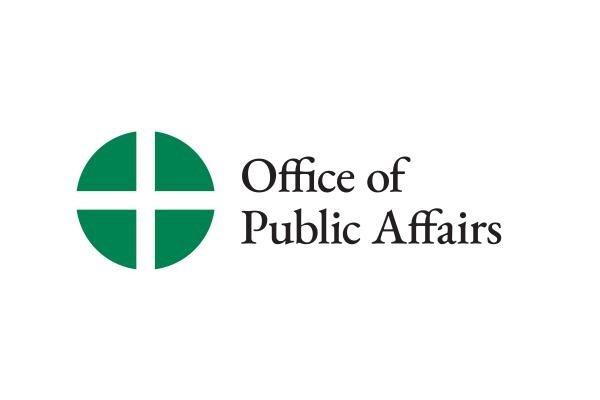Agreed Statement on Baptism and "Sacramental Economy" Issued by North American Orthodox-Catholic Consultation
WASHINGTON (June 8, 1999) -- The North American Orthodox-Catholic Theological Consultation has issued an agreed statement on Baptism and "Sacramental Economy." The document summarizes three years of theological reflection and calls upon the Orthodox and Catholic Churches to remove the obstacles pre
WASHINGTON (June 8, 1999) -- The North American Orthodox-Catholic Theological Consultation has issued an agreed statement on Baptism and "Sacramental Economy." The document summarizes three years of theological reflection and calls upon the Orthodox and Catholic Churches to remove the obstacles preventing formal recognition of each other's baptism.
The agreed statement was issued following a meeting of the Consultation held at St. Vladimir's Orthodox Seminary in Crestwood, New York.
The text begins with an overview of the teaching on baptism shared by the two churches, and concludes that the baptismal teaching of both churches is the same. Indeed, each has consistently recognized the reality of baptism in the other church in spite of a new theory of "sacramental economy" that became influential in the Orthodox world beginning in the 18th century. It is this theory that has provided the theological justification for Orthodox to re-baptize Catholics in some times and places, and enjoys support in some Orthodox circles today. The document points out that this theory is not consistent with the perennial teaching of the Orthodox Church, and "is not the majority position of the Orthodox churches today." It also recalls that conditional rebaptism of Orthodox by Catholics was at one time standard Catholic practice, and has continued in some places even up to the present in spite of the official teaching of the Catholic Church on the validity of Orthodox sacraments.
The agreed statement concludes with five recommendations: 1) that the International Orthodox-Catholic dialogue explore in a more ample way the theological grounds for mutual recognition of baptism by the two churches; 2) that the churches address the danger posed by some modern theories of "sacramental economy" to the continuation of the dialogue and the perennial teaching of the Orthodox Church; 3) that the Patriarchate of Constantinople formally withdraw its decree of 1755 that required the re-baptism of Catholic converts; 4) that the Orthodox churches declare that the reception of Catholics by chrismation does not constitute a repetition of any part of sacramental initiation; and 5) the churches make clear that while mutual recognition of baptism would not resolve all the problems dividing them, it would "remove a fundamental obstacle on our path towards full communion."
The theological consultation had been exploring this subject in part because some of the negative reactions to the 1993 Balamand Document of the international dialogue had been based on its implicit recognition of the sacraments of the two churches, and its statement that re-baptism is to be avoided.
During the meeting the members of the consultation also heard papers by Sr. Donna Geerneart and Fr. Thomas FitzGerald on the value of ecumenical witness, and a presentation by Prof. Robin Darling Young on the 1995 "Clarification" issued by the Holy See, "The Greek and Latin Traditions Regarding the Procession of the Holy Spirit." Both these subjects will be dealt with again at the 57th meeting of the consultation, which is to take place in Washington, DC, in October 1999.
The North American Orthodox-Catholic Theological Consultation is co-chaired by His Excellency Archbishop Rembert Weakland of Milwaukee and His Eminence Metropolitan Maximos of Ainou, Bishop of Pittsburgh. It has met regularly since 1965 and was the first officially established dialogue between the two Churches anywhere in the world. The Consultation is sponsored by the Standing Conference of Canonical Orthodox Bishops in the Americas (SCOBA), the Bishops' Committee for Ecumenical and Interreligious Affairs of the National Conference of Catholic Bishops (NCCB) and the Canadian Conference of Catholic Bishops (CCCB). Another body, the Joint Committee of Orthodox and Catholic Bishops, has been meeting annually since 1981 to discuss pastoral issues between the two churches.
Members present and participating in the three-day meetings were, besides those mentioned above, on the Orthodox side: Frs. Nicholas Apostola, Alkiviadis Calivas, James Dutko, Alexander Golitzin, Emmanuel Gratsias, Paul Schneirla, and Robert Stephanopoulos; Professor John Erickson; Drs. Robert Haddad and Lewis Patsavos; staff: Bishop Dimitrios of Xanthos. Unable to attend: Archbishop Peter (L'Huilier) and Dr. Susan Ashbrook Harvey.
On the Catholic side, members present and participating in the meetings were, besides those already mentioned: Frs. Brian Daley, Peter Galadza, John Galvin, Sidney Griffith, John Long, and David Petras; Prof. Thomas Bird; staff: Fr. Ronald Roberson, CSP, of the Secretariat for Ecumenical and Interreligious Affairs. Unable to attend: Frs. Frederick McManus and George Berthold.

